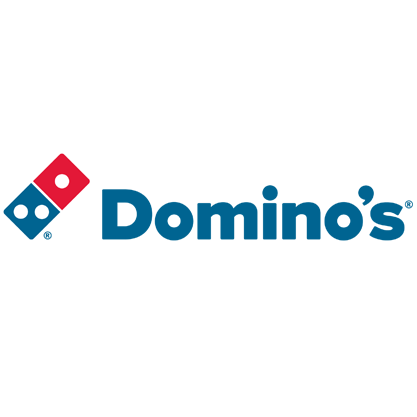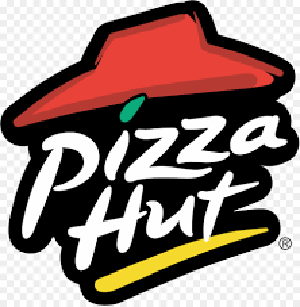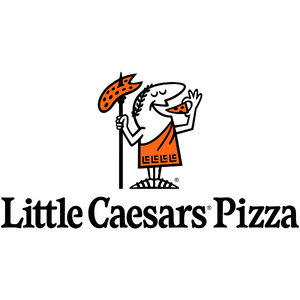Papa Murphys Franchise in 2025: Costs, Fee & FDD
Discover the potential of investing in a Papa Murphy’s franchise, a leader in the quick-service pizza industry. Learn about startup costs, earnings, and the unique take-and-bake model that continues to attract loyal customers.
Table of Contents:
Papa Murphy’s, a standout in the quick-service restaurant industry, was founded in 1981 by Terrence and Rose Collins. The brand quickly carved out a niche with its unique take-and-bake pizza concept, where customers can purchase fresh, custom-made pizzas to bake at home. This innovative approach set Papa Murphy’s apart from traditional pizza chains and has since established the brand as a go-to option for busy families and pizza lovers who appreciate the convenience of a ready-to-bake meal. Over the years, Papa Murphy’s has earned a reputation for quality, freshness, and simplicity, making it a beloved name in the pizza world.
At the heart of Papa Murphy’s offerings are its customizable pizzas, made fresh daily with high-quality ingredients. Customers can choose from a variety of crusts, sauces, and toppings to create their perfect pizza or select from a menu of classic and specialty pizzas. Beyond pizzas, the franchise also offers side items like cheesy bread, salads, and desserts, ensuring there’s something for everyone. The core market for Papa Murphy’s includes families, working professionals, and anyone looking for a convenient, high-quality meal option without the fuss of dining out.
Papa Murphy’s has grown significantly since its inception, with over 1,200 locations across the United States and Canada. This impressive scale highlights the brand’s widespread appeal and success in the quick-service restaurant industry. The franchise serves millions of customers annually, making it one of the largest take-and-bake pizza chains in North America. The consistent growth in its customer base and expansion into new markets underscores its robust business model and enduring popularity.
Franchisees benefit from a comprehensive support system, including extensive training programs that cover everything from operations and marketing to customer service and food preparation. Papa Murphy’s offers ongoing support through regular updates, marketing initiatives, and access to a network of experienced franchisees. This strong support structure is designed to help franchisees succeed, whether they’re new to the industry or seasoned business owners looking to expand their portfolio. Additionally, the brand’s commitment to innovation and quality ensures that franchisees are always equipped to meet customer expectations and adapt to market trends.
Papa Murphy’s Franchise Insights
- Investment Range: The total investment required to open a Papa Murphy’s franchise ranges from $367K to $670K, which is competitive within the quick-service restaurant industry, especially for a proven brand like this.
- Established Brand: Although founded in 2004, Papa Murphy’s has grown rapidly, with 1,127 total U.S. locations, 1,119 of which are franchised units, showcasing the brand’s strong franchising model.
- Innovative Business Model: The take-and-bake concept means lower overhead costs for franchisees, as there’s no need for expensive ovens or seating areas, allowing for a streamlined and efficient operation.
- High Customer Loyalty: Papa Murphy’s boasts a strong customer loyalty base, with many locations seeing repeat customers making up over 60% of their business, thanks to the freshness and customizability of their pizzas.
Papa Murphy’s Franchise Key indicators
Growth YOY (%)
-2%
vs industry 0%
Total U.S. Franchised Units
1,119
3-Year Failure Rate
16%
vs industry 10%
Sales-to-Investment ratio
1.2:1
How much does it cost to open a Papa Murphy’s franchise?
Understanding the potential investment size and capital requirements is crucial when considering opening a Papa Murphy’s franchise. These financial commitments, including initial franchise fees, equipment costs, and ongoing operational expenses, impact the feasibility and profitability of the venture. Thoroughly evaluating these factors ensures that potential franchisees are prepared for the financial responsibilities and can make informed decisions about their ability to sustain and grow the business, ultimately contributing to long-term success.
Min & Max Investment
Opening a Papa Murphy’s franchise involves several key costs, which are outlined in Item 7 of the Franchise Disclosure Document (FDD). You can see a breakdown of the costs to open a Papa Murphy’s below from the most recent Item 7 below:
| Type of Expenditure | Minimum Investment | Maximum Investment |
|---|---|---|
| Initial or Subsequent Franchise Fee | $15,000 | $25,000 |
| Lease and Utilities Deposits | $3,000 | $7,500 |
| Leasehold Improvements | $139,000 | $278,000 |
| Signs | $9,000 | $25,000 |
| Stamped Architectural Drawings | $6,250 | $9,350 |
| As Built Survey | $2,500 | $3,700 |
| Opening Package (including Equipment and Supplies) | $150,114 | $220,448 |
| Miscellaneous Development Service Fee | $0 | $1,270 |
| Inventory | $5,000 | $7,000 |
| Initial Marketing Fees and Expenses – 6 months | $15,000 | $15,000 |
| Franchise Premises Rent – 3 months | $9,000 | $11,700 |
| Materials and Supplies | $500 | $2,000 |
| Operations In-Store Training, Enterprise Solution Training and Foundations Class | $0 | $750 |
| Travel and Living Expenses for In-Store Compatibility Check, Operations In-Store Training, Enterprise Solutions Training and Foundations Class | $1,180 | $9,305 |
| Employee Training | $500 | $1,500 |
| Insurance – 3 months | $375 | $1,175 |
| Bookkeeping/Payroll Service – 3 months | $825 | $1,800 |
| Additional Funds, Working Capital, and Miscellaneous Expenses – 3 months | $10,000 | $50,000 |
| Total Estimated Initial Investment | $367,244 | $670,498 |
Item 7 in the Franchise Disclosure Document (FDD) is the “Estimated Initial Investment” section. It outlines the total costs a franchisee can expect to incur when starting a franchise, including the initial franchise fee, equipment, inventory, real estate, and other startup expenses. This section is crucial because it provides potential franchisees with a detailed understanding of the financial commitment required, helping them assess affordability and plan their investment strategy effectively.
Required Capital
For Papa Murphy’s, based on the data provided and typical industry standards, here’s what you can expect:
- Initial Investment As shown above, the total estimated initial investment ranges from $367,000 to $670,500. This includes all the startup costs such as the franchise fee, real estate, construction, equipment, initial inventory, and additional funds for initial operating expenses. Assuming that you will finance your franchise investment, you should plan to have 20% of the total investment amount in the form of equity (cash) for the investment.
- Liquid Assets Franchisees typically need to have around $88,612 in liquid assets, which is essential for covering initial expenses and maintaining operations until the business becomes profitable. This figure is consistent with what Papa Murphy’s requires, but it could vary slightly depending on specific circumstances or location.
- Net Worth Although not explicitly stated, for similar franchises in the quick-service restaurant industry, a minimum net worth of $500,000 to $1,000,000 is usually required. This ensures that the franchisee has the financial stability to support the business and weather any initial challenges.
How much does a Papa Murphy’s franchise owner make?
Calculating the salary of a Papa Murphy’s franchise owner involves analyzing gross sales to determine total revenue, assessing operational efficiency to understand profit margins, and accounting for franchisor fees and additional expenses such as rent, utilities, and payroll. Effective management of these factors can significantly impact the profitability and financial success of a Papa Murphy’s franchise owner. This comprehensive financial analysis helps estimate net profits, from which the owner’s salary can be derived. A clear understanding of these factors ensures accurate salary projections and financial planning for sustainable business operations.
Papa Murphy’s Revenue & Gross Sales
Based on most recent analysis, Papa Murphy’s franchises have a median gross sales of $612,750. This strong financial performance underscores the brand’s robust consumer demand and potential for significant revenue generation.
Which key factors impact the average revenue performance of Papa Murphy’s franchisees?
The performance of U.S. franchisee median gross sales for Papa Murphy’s over the past year could have been influenced by several key factors. One likely contributor is the increasing demand for convenient, high-quality meal options, which has bolstered the appeal of the take-and-bake concept, especially among families and busy professionals. Additionally, as more consumers seek value-driven dining experiences, Papa Murphy’s competitive pricing and customizable menu options have likely attracted a broader customer base. Marketing efforts, coupled with the brand’s strong community presence, may have also played a role in driving sales. Lastly, operational efficiencies and innovation in menu offerings, such as introducing new pizza flavors or limited-time promotions, could have further enhanced sales performance compared to the previous year.
Papa Murphy’s Franchise Operational Costs
When opening a Papa Murphy’s franchise, the key primary ongoing operational costs you’ll need to consider include:
- Labor Costs Salaries and wages for your staff, including managers, cashiers, and kitchen workers, will be a significant portion of your ongoing expenses. Ensuring you have the right balance of staff to meet demand while controlling overtime is crucial.
- Rent and Utilities The cost of leasing your store location and the utilities (electricity, water, gas) to keep it running are consistent and necessary expenses. The location’s size, lease terms, and energy usage will impact these costs.
- Food and Supply Costs Regular purchases of fresh ingredients, packaging, and other supplies are essential to maintain the quality of your offerings. Managing inventory effectively to minimize waste while ensuring product availability is key.
- Equipment Maintenance The upkeep and maintenance of kitchen equipment, such as refrigeration units, ovens, and prep stations, are necessary to ensure smooth operations and avoid costly downtime.
- Marketing and Local Advertising While general marketing fees may be covered by the franchise, local advertising efforts, such as promotions or community engagement activities, will require a budget to drive traffic to your specific location.
- Insurance Maintaining comprehensive insurance coverage, including property, liability, and worker’s compensation, is an ongoing cost that helps protect your business from unforeseen events.
These costs will vary depending on your location and operational efficiency, so careful budgeting and financial management will be key to maintaining profitability.
Papa Murphy’s Franchise Fees
When considering the ongoing costs of operating a Papa Murphy’s franchise, it’s essential to be aware of the fees outlined in the franchise agreement. These fees are crucial for maintaining the brand’s consistency and supporting the overall franchise network.
Here are the key ongoing fees:
- Royalty Fee 5% of your weekly net sales is deducted each week. This fee is essential for gaining the benefits of the Papa Murphy’s brand, including ongoing support and access to the franchise system.
- Brand Marketing Fee 2% of your weekly net sales is also deducted weekly. This fee contributes to national marketing efforts, ensuring that the Papa Murphy’s brand remains strong and recognized across the country.
- Local Marketing and Promotion You are required to spend a minimum of 5% of your net sales or $2,000 each month on local marketing and regional cooperative advertising. This ensures that your specific location stays competitive and visible in your local market.
It’s also important to note that there may be additional fees related to other aspects of the franchise operations, so reviewing the Franchise Disclosure Document (FDD) thoroughly is crucial before making your investment decision.
Papa Murphy’s Franchise Earnings
Based on the most recent data, a Papa Murphy’s franchise with median gross sales of approximately $612,750 could yield an owner-operator earnings of around $91,913 based on operating profit margins. This figure represents the income that a hands-on franchisee might expect after accounting for various operating costs, excluding the ongoing fees such as royalties and marketing expenses.
These earnings offer a solid return, especially when considering the relatively low overhead costs associated with a take-and-bake pizza operation. However, actual earnings can vary based on factors like location, local market conditions, and how effectively the franchise is managed. It’s essential for prospective franchisees to carefully evaluate these factors and consider the potential for growth when making an investment decision.
How to Open a Papa Murphy’s Franchise
Becoming a Papa Murphy’s franchisee involves several important steps, each designed to ensure that you’re well-prepared to successfully operate your new business. Here’s an overview of the process:
- Initial Inquiry You or your franchise specialist submits an initial inquiry basic information about your interest and background. You should also conduct thorough research on the franchise, including seeing all of the information available on the Vetted Biz franchise intelligence platform, including access to the most recent Franchise Disclosure Document (FDD).
- Franchise Application After your inquiry, you’ll be asked to complete a detailed franchise application. This form provides the franchisor with information about your financial background, business experience, and overall suitability for becoming a franchisee.
- Discovery Day If you’re still interested after reviewing the FDD, you’ll be invited to a Discovery Day. This event typically involves visiting the corporate headquarters, meeting with the leadership team, and touring existing franchise locations. It’s a chance to get a feel for the company culture and ask any final questions.
- Franchise Agreement Signing After Discovery Day, if both parties agree to proceed, you’ll sign the franchise agreement. This is the official contract that legally binds you as a franchisee to the terms outlined in the FDD.
- Site Selection and Lease Negotiation With the agreement signed, the next step is finding the right location for your Papa Murphy’s store. The franchisor will assist you in selecting a site that meets their criteria, and they may help negotiate the lease terms.
- Training Program Papa Murphy’s provides a comprehensive training program to prepare you for running your store. This includes training on operations, marketing, customer service, and product preparation. The training may take place at the corporate headquarters, online, and at your location.
- Store Build-Out and Setup While you’re undergoing training, the store build-out process will be in progress. This includes construction, outfitting the store with equipment, signage, and setting up inventory.
- Grand Opening and Ongoing Support Once the store is ready, and you’ve completed your training, it’s time for the grand opening. Papa Murphy’s typically provides support with marketing and promotions to ensure a successful launch. From here, you’ll receive ongoing support from the corporate team to help manage and grow your business.
Pros & Cons
Pros
Unique Business Model: Papa Murphy’s take-and-bake concept differentiates it from other pizza franchises, offering a fresh, customizable product that appeals to a broad customer base.
Lower Overhead Costs: Without the need for in-store dining facilities or ovens, the operational costs are typically lower than those of traditional pizza restaurants.
Strong Brand Recognition: As a well-established brand with over 1,100 locations, Papa Murphy’s has a loyal customer base and strong market presence.
Flexible Investment Range: The initial investment range is competitive within the quick-service restaurant industry, making it more accessible to potential franchisees with varying levels of capital.
Cons
Market Saturation: With a large number of locations, particularly in certain regions, you may face stiff competition from other franchisees or similar take-out/delivery businesses.
Local Marketing Responsibility: Although national marketing is supported, you’ll need to invest in local marketing efforts to drive traffic to your specific location, which can add to your ongoing expenses.
Limited Menu Flexibility: The franchise model requires adherence to specific menu offerings and operational procedures, which might limit your ability to adapt to local tastes or experiment with new ideas.





